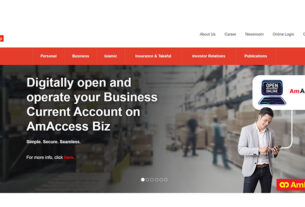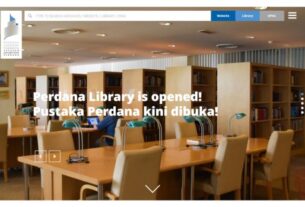Despite continuous encouragement by the Malaysian government for local businesses to digitise their operations, much more could be done to address inefficiencies caused by traditional manual processes.
A new study comissioned by SAP Concur involving local respondents revealed that manual finance and administrative processes are resulting in productivity losses, estimated at some US$405 million (RM1.73 billion) of gross domestic product (GDP) per year.
The study done in collaboration with consulting group Asia Insight, entitled “Finance in the New World of Work” aims to inform business, finance and HR decision makers of the economic cost of poor finance and administrative processes and systems. It also identifies the gaps in organisations’ expense management, business travel and remote work processes.
As many as thirty percent of respondents submit expenses manually by filling out a form and enclosing physical receipts.
Laura Houldsworth, Managing Director for SAP Concur Southeast Asia, described such practices as “tedious, error prone, and incongruous with the digital lifestyles employees are leading today.”
“With the unprecedented number of people working from home in 2020, this is really a watershed year for companies to manage employee productivity. While remote workers are well supported digitally in many areas, crucial yet often overlooked finance and administrative processes remain painfully manual,” added Laura.
“This takes up significant time that could otherwise be used for productive, customer value-added work. The situation is costly to businesses and creates more challenges in the current economic climate.”
According to the study, employees spent an average of 4.1 hours per month filing expense claims – about half a typical workday. Managers had it worse – they spent 6.1 hours reviewing and approving expense claims, in addition to the 4.1 hours they spent submitting their own claims. That added up to an astonishing 14.3 hours a month of lost productivity.
Finance Transformation is Lagging
Beyond the tedium (57 % of respondents say they are less than satisfied with their organisation’s expense claims process) and inefficiency costs, the study also found that current expense management systems’ support for modern payment methods is inadequate.
More than a third (37%) of respondents said they want their expense management software to integrate with external apps to enable added functionality like reimbursement of payments made through super apps (umbrella apps containing other apps).
Room for Improvement in Business Travel
The preference for all things mobile and digital includes business travel too. Corporate travel systems that enable staff to book flights and accommodations digitally and via mobile, perhaps even on their usual personal travel booking platforms and apps, help keep them happy.
Travellers also want mobile-based features like real time alerts of danger spots and the ability to make itinerary changes on-the-fly via mobile, as well as seamless travel management with a high degree of personalisation. However for many organisations, business travel management is piecemeal and disjointed, leaving 39 percent of employees less than satisfied with the time and effort incurred.
Gearing Up the Workforce for Remote Work
Remote work will be the default mode of work for many organisations in the foreseeable future.
While 54 percent of the respondents said they feel more productive working from home, 28 percent of employees cited the loss of productivity during official work hours due to distractions as their top challenge. So companies are now at a point where they can adapt their operations to make remote work a boon to them, or do nothing and let it become a hindrance.
Survey respondents want their employers to enable easy remote claims and travel management, improve collaboration, and provide better IT equipment and services.
Opportunity for Organisations to Embrace Remote Work for Better Business Outcomes
Fifty-seven percent of employees strongly link their overall finance and administrative experience and their overall satisfaction of working for their organisations. This suggests that if businesses want to retain their talent, they need to improve their finance and administrative processes.
Three recommendations for local businesses made by the study are:
1. Automate Expense and Business Travel Management
Automation takes repetitive, manual aspects out of routine finance and administrative tasks, saving employees time so they can focus on meaningful work. It also saves time for the finance team by eliminating paperwork and detecting erroneous or fraudulent claims. Just as importantly, automated solutions provide visibility and control, and facilitate compliance.
2. Make Business Travel More Streamlined and Personalised
Travel managers should revamp their travel management systems by:
- Enhancing controls: Reviewing their travel policy to better control costs; moving to digital receipts; and aligning their expense and travel policies
- Improving visibility: Integrating their travel and expense systems to facilitate data flow; considering app-based bookings that still stay within corporate policy; and improving budget and spend reporting
- Bolstering duty of care readiness: Ensuring they know travellers’ locations at all times and be in a position to render assistance
3. Align Systems and Tools to Optimally Support Remote Work
“Organisations must make their infrastructure and processes conducive for remote work. This includes digitising paper receipts, allowing vendors to invoice organisations directly for their employees’ purchases, and deploying experience management tools for better collaboration,” said Laura.
She also encouraged companies to review their expense policies to ensure staff are properly reimbursed for items or services used to facilitate remote work.
“Adoption of the recommendations made would lead to an efficient, agile, and innovative finance organisation, which can better support the business in delivering value to customers, helping it become more resilient for the new era,” concluded Laura.
For full recommendations and other findings, download the SAP Concur Finance in the New World of Work Study whitepaper here.
Note: Consulting Group Asia Insight, which conducted the survey, used International Labour Organization (ILO) statistics on output per worker and the number of information workers, and the study’s results, to calculate and derive that saving just 10 percent of the time spent on filing and approving claims would translate to US$405 million of potential GDP revenue gain for Malaysia each year, assuming all the lost hours are diverted to productive work. Mid to large-sized organisations could save tens or hundreds of thousands of dollars over the same period.




